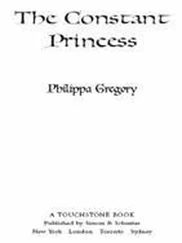Philippa Gregory - The White Princess
Здесь есть возможность читать онлайн «Philippa Gregory - The White Princess» весь текст электронной книги совершенно бесплатно (целиком полную версию без сокращений). В некоторых случаях можно слушать аудио, скачать через торрент в формате fb2 и присутствует краткое содержание. Жанр: Старинная литература, на английском языке. Описание произведения, (предисловие) а так же отзывы посетителей доступны на портале библиотеки ЛибКат.
- Название:The White Princess
- Автор:
- Жанр:
- Год:неизвестен
- ISBN:нет данных
- Рейтинг книги:5 / 5. Голосов: 1
-
Избранное:Добавить в избранное
- Отзывы:
-
Ваша оценка:
- 100
- 1
- 2
- 3
- 4
- 5
The White Princess: краткое содержание, описание и аннотация
Предлагаем к чтению аннотацию, описание, краткое содержание или предисловие (зависит от того, что написал сам автор книги «The White Princess»). Если вы не нашли необходимую информацию о книге — напишите в комментариях, мы постараемся отыскать её.
The White Princess — читать онлайн бесплатно полную книгу (весь текст) целиком
Ниже представлен текст книги, разбитый по страницам. Система сохранения места последней прочитанной страницы, позволяет с удобством читать онлайн бесплатно книгу «The White Princess», без необходимости каждый раз заново искать на чём Вы остановились. Поставьте закладку, и сможете в любой момент перейти на страницу, на которой закончили чтение.
Интервал:
Закладка:
Thank you for downloading this Touchstone eBook.
Join our mailing list and get updates on new releases, deals, bonus content and other great books from Touchstone and Simon & Schuster.
CLICK HERE TO SIGN UP
or visit us online to sign up at
eBookNews.SimonandSchuster.com

For Anthony


SHERIFF HUTTON CASTLE, YORKSHIRE, AUTUMN 1485

I wish I could stop dreaming. I wish to God I could stop dreaming.
I am so tired; all I want to do is sleep. I want to sleep all the day, from dawn until twilight that every evening comes a little earlier and a little more drearily. In the daytime, all I think about is sleeping. But in the night all I do is try to stay awake.
I go to his quiet shuttered rooms to look at the candle as it gutters in the golden candlestick, burning slowly through the marked hours, though he will never see light again. The servants take a taper to a fresh candle every day at noon; each hour burns slowly away, although time means nothing to him now. Time is quite lost to him in his eternal darkness, in his eternal timelessness, though it leans so heavily on me. All day long I wait for the slow rolling in of the gray evening and the mournful tolling of the Compline bell, when I can go to the chapel and pray for his soul, though he will never again hear my whispers, nor the quiet chanting of the priests.
Then I can go to bed. But when I get to bed I dare not sleep because I cannot bear the dreams that come. I dream of him. Over and over again I dream of him.
All day I keep my face smiling like a mask, smiling, smiling, my teeth bared, my eyes bright, my skin like strained parchment, paper-thin. I keep my voice clear and mellow, I speak words that have no meaning, and sometimes, when required, I even sing. At night I fall into my bed as if I were drowning in deep water, as if I were sinking below the depths, as if the water were possessing me, taking me like a mermaid, and for a moment I feel a deep relief as if, submerged in water, my grief can drain away, as if it were the river Lethe and the currents can bring forgetfulness and wash me into the cave of sleep; but then the dreams come.
I don’t dream of his death—it would be the worst of nightmares to see him go down fighting. But I never dream of the battle, I don’t see his final charge into the very heart of Henry Tudor’s guard. I don’t see him hacking his way through. I don’t see Thomas Stanley’s army sweep down and bury him under their hooves, as he is thrown from his horse, his sword arm failing, going down under a merciless cavalry charge, shouting: “Treason! Treason! Treason!” I don’t see William Stanley raise his crown and put it on another man’s head.
I don’t dream any of this, and I thank God for that mercy at least. These are my constant daytime thoughts that I cannot escape. These are bloody daytime reveries that fill my mind while I walk and talk lightly of the unseasonal heat, of the dryness of the ground, of the poor harvest this year. But my dreams at night are more painful, far more painful than this, for then I dream that I am in his arms and he is waking me with a kiss. I dream that we are walking in a garden, planning our future. I dream that I am pregnant with his child, my rounded belly under his warm hand, and he is smiling, delighted, and I am promising him that we will have a son, the son that he needs, a son for York, a son for England, a son for the two of us. “We’ll call him Arthur,” he says. “We’ll call him Arthur, like Arthur of Camelot, we’ll call him Arthur for England.”
The pain, when I wake to find that I have been dreaming again, seems to get worse every day. I wish to God I could stop dreaming.

My dearest daughter Elizabeth,
My heart and prayers are with you, dear child; but now, of all the times in your life, you must act the part of the queen that you were born to be.
The new king, Henry Tudor, commands you to come to me at the Palace of Westminster in London and you are to bring your sisters and cousins. Note this: he has not denied his betrothal to you. I expect it to go ahead.
I know this is not what you hoped for, my dear; but Richard is dead, and that part of your life is over. Henry is the victor and our task now is to make you his wife and Queen of England.
You will obey me in one other thing also: you will smile and look joyful as a bride coming to her betrothed. A princess does not share her grief with all the world. You were born a princess and you are the heir to a long line of courageous women. Lift up your chin and smile, my dear. I am waiting for you, and I will be smiling too.
Your loving mother
Elizabeth R
Dowager Queen of England
I read this letter with some care, for my mother has never been a straightforward woman and any word from her is always freighted with levels of meaning. I can imagine her thrilling at another chance at the throne of England. She is an indomitable woman; I have seen her brought very low, but never, even when she was widowed, even when nearly mad with grief, have I seen her humbled.
I understand at once her orders to look happy, to forget that the man I love is dead and tumbled into an unmarked grave, to forge the future of my family by hammering myself into marriage with his enemy. Henry Tudor has come to England, having spent his whole life in waiting, and he has won his battle, defeated the rightful king, my lover Richard, and now I am, like England itself, part of the spoils of war. If Richard had won at Bosworth—and who would ever have dreamed that he would not?—I would have been his queen and his loving wife. But he went down under the swords of traitors, the very men who mustered and swore to fight for him; and instead I am to marry Henry and the glorious sixteen months when I was Richard’s lover, all but queen of his court, and he was the heart of my heart, will be forgotten. Indeed, I had better hope that they are forgotten. I have to forget them myself.
I read my mother’s letter, standing under the archway of the gatehouse of the great castle of Sheriff Hutton, and I turn and walk into the hall, where a fire is burning in the central stone hearth, the air warm and hazy with woodsmoke. I crumple the single page into a ball and thrust it into the heart of the glowing logs, and watch it burn. Any mention of my love for Richard and his promises to me must be destroyed like this. And I must hide other secrets too, one especially. I was raised as a talkative princess in an open court rich with intellectual inquiry, where anything could be thought, said, and written; but in the years since my father’s death, I have learned the secretive skills of a spy.
My eyes are filling with tears from the smoke of the fire, but I know that there is no point in weeping. I rub my face and go to find the children in the big chamber at the top of the west tower that serves as their schoolroom and playroom. My sixteen-year-old sister Cecily has been singing with them this morning, and I can hear their voices and the rhythmic thud of the tabor as I climb the stone stairs. When I push open the door, they break off and demand that I listen to a round they have composed. My ten-year-old sister Anne has been taught by the best masters since she was a baby, our twelve-year-old cousin Margaret can hold a tune, and her ten-year-old brother Edward has a clear soprano as sweet as a flute. I listen and then clap my hands in applause. “And now, I have news for you.”
Читать дальшеИнтервал:
Закладка:
Похожие книги на «The White Princess»
Представляем Вашему вниманию похожие книги на «The White Princess» списком для выбора. Мы отобрали схожую по названию и смыслу литературу в надежде предоставить читателям больше вариантов отыскать новые, интересные, ещё непрочитанные произведения.
Обсуждение, отзывы о книге «The White Princess» и просто собственные мнения читателей. Оставьте ваши комментарии, напишите, что Вы думаете о произведении, его смысле или главных героях. Укажите что конкретно понравилось, а что нет, и почему Вы так считаете.












